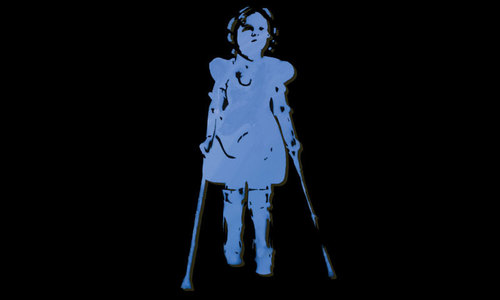Last month I went to an event at a local hotel. After it ended, an elderly man whom I did not know —probably one of the organisers — thanked me for attending the event.
I thought he was being courteous, so I thanked him in return for organising the event.
It was what he said after that which made me write this piece.
Some context before I go further: I cannot walk since birth and use a wheelchair or a walker. It is necessary for you to know this in order to understand the point I am going to make.
When I thanked the man, he replied: “nahin, beta, aap ne itni takleef utha kar aane ki himmat ki, bohat khushi hui. Thank you for coming.” (No, son, you made the painful effort to come, it’s made me really happy. Thank you for coming.)
Two words are of importance here: takleef (pain) and himmat (perseverance).
The man who came up to me did not ask me whether I actually had to make a painful effort to attend the event; he just assumed I did. My question is, why?
I do recognise that what he said to me wasn’t meant to be malicious; in fact, I am sure it was out of genuine appreciation and respect.
He wasn’t the first person to say it. All my life, I have had people come up to me and say similar things. I understand their intent.
But even people who are nice, have good intentions, and do not mean to hurt, do not understand their actions are ignorant and insensitive.
The reason is simple: if for an able-bodied person, walking is normal, then for a person in a wheelchair, being in a wheelchair is normal.
Of course, we have to be careful of the nuances: there are some people for whom it can be extremely painful and hard work, but even they would like other people to not be patronising and presumptuous.
As Ghalib said:
رنج سے خو گر ہوا انساں تو مٹ جاتا ہے رنج
مشکلیں مجھ پر پڑیں اتنی کہ آساں ہو گئیں
When a person becomes accustomed to grief, the grief is erased
So many difficulties fell upon me that they became easy
What Ghalib is saying holds true for many of us in wheelchairs. What we do every day repeatedly, even if it is initially difficult for us, becomes easy with time to a point where it is almost effortless.
This brings me to a question I have always wanted to ask people who find me inspirational: what is so inspirational about me, or anyone else in a wheelchair, carrying out daily activities?
It makes complete sense to appreciate Mobeen Ansari for the amazing photographs he takes, but how does it make sense if one started to appreciate him for taking amazing photographs despite not being able to hear?
I am not discounting the impact the impairment may have had on him. To dismiss it would be unfair because I know my inability to walk has had quite an impact on me.
And believe me, I do not get up everyday with the purpose of inspiring people.
I get up every day to attend classes, hang out with my friends, read a book and everything that a ‘normal’ university student does.
To come back to the point about intention, I genuinely believe that nobody wants to hurt anyone in a wheelchair when they show sympathy.
The intention is always to make us feel better. So, if you really want to make us feel better, let me tell you what you should do:
Treat us with equity.
That’s it. That’s all there is to do.
Let me make this even easier. Here is a non-exhaustive list of things you can do:
- Educate yourself about the social model of disability and the concept of ableism. You can begin by reading this series of articles.
- Make a point to not consider anyone on a wheelchair different from you.
- Stop romanticising people with disabilities and stop treating them as a means for your inspiration.
- There may be times when a person in a wheelchair may need help, but do not start helping them without their consent.
- If you want to offer help, do so in a manner that is not patronising. If they decline your offer, do not insist on helping. If they need your help, they will ask.
- Try to make yourself and your surroundings as accommodating of special needs as possible.
December 3 is the International Day of Persons with Disabilities. While I am critical of the very idea of it, the occasion may serve as a good tool to create awareness about the phenomenon known as disability.
It’s one thing to say that everyone should have equal rights, but what’s more important is to act upon this and get rid of your preconceived notions.
As I said, it isn’t easy. Being a good human being can be hard; if it were simple, there would be no point to it.
Are you someone with a disability? Are you a caretaker? Share your story with us at blog@dawn.com















































